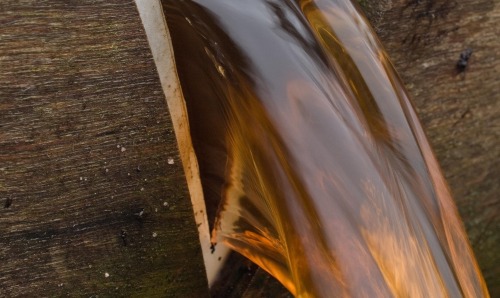
Environmental Processes (EPRG)
The Environmental Processes Research Group (EPRG) focuses on understanding fundamental environmental processes and how they relate to contemporary environmental challenges.

Our group brings together expertise from a wide range of geographical sub-disciplines to tackle some of the most challenging research questions associated with environmental risk and response. Current areas of interest include:
- peatlands and ecological resilience;
- wildfires and biomass burning;
- urban green infrastructure and nature-based solutions.
A hallmark of our research is our close collaboration with practitioners and policymakers. We are committed to a model of research that fosters interdisciplinary working between researcher and practitioner communities.
EPRG’s work covers field experiments, laboratory analyses and a range of environmental monitoring and modelling techniques. Our research is supported by various funding bodies, including:
- government departments and agencies (such as Defra, Natural England, and the Environment Agency);
- the European Union (EU);
- the UK Research Councils (e.g. Natural Environment Research Council).
Our research
Environmental change in upland ecosystems
One of our research priorities is the study of peatlands and their interactions with the wider environment. We work in partnership with Defra, the Moors for the Future Partnerships, water companies, and many other stakeholders.
For more information on the importance of upland peatlands, please see our dedicated pages.
Themes
- Erosion and sediment budgets
- Impacts of peatland restoration
- Microbial controls on peatland functioning
- Peatland carbon cycling
- Peatland hydrology
Projects
- Optimising natural flood management in headwater catchments to protect downstream communities (Protect-NFM)
- Towards a microbial process-based understanding of the resilience of UK peatland systems
People
- Danielle Alderson
- Tim Allott
- Sarah Brown
- Gareth Clay
- Martin Evans
- Claire Goulsbra
- Angela Harris
- Adam Johnston
- Jane Mellor
- Emma Shuttleworth
Green infrastructure
Our urban ecosystems work has built into a major theme on urban green infrastructure and nature-based solutions to environmental risk.
Themes
- Developing innovative decision making and financing models for green infrastructure
- Evidencing the benefits of green infrastructure for urban water and climate resilience
- Health and wellbeing benefits of urban green infrastructure
Projects
- Green Cities for Climate and Water Resilience, Sustainable Economic Growth, Healthy Citizens and Environments (GrowGreen)
- Green Growth: Increasing Resilience in Cities through the delivery of Green Infrastructure-Based Solutions
- Green infrastructure and the Health and Wellbeing Influences on an Ageing Population (GHIA)
- IGNITION: Innovative financing and delivery of natural climate solutions in Greater Manchester
- Safeguarding the last 100 meters of potable water provisioning to unplanned settlements (L100M)
People
- Jamie Anderson
- Gareth Clay
- Matt Dennis
- Peter Kabano
- SM Labib
- Sarah Lindley
- James Rothwell
Remote sensing and geospatial analysis of environmental change
Within the field of geographical information science, the group has particular strengths in remote sensing and geospatial analysis methods and how they can be used for understanding form, pattern and process.
There are strong links with the Mapping: Culture and Geographical Information Science (MCGIS) research group.
Themes
- Detection of ecosystem disturbances
- Geospatial software development
- Monitoring impact of environmental change on vegetation communities
- Spatial patterns and urban ecology
Projects
People
Wildfires and biomass burning
Our work on wildfires and biomass burning aims to deepen our understanding of the drivers, processes, and impacts of fire and burning, both here in the UK and internationally (e.g. South-East Asia's tropical peatlands).
Themes
- Detection of burn scars using radar and other satellite technology
- Development of tools for risk management
- Environmental impact of fires (e.g. carbon, erosion, sediment, and pollutant transfer)
- Understanding drivers of UK wildfires
Projects
- EnviroSAR
- Sediment and contaminant delivery to upland reservoirs following severe wildfire
- Toward a UK fire danger rating system: Understanding fuels, fire behaviour and impacts
- Towards a Fire Early Warning system for Indonesia (ToFEWSI)
People
- Gareth Clay
- Martin Evans
- Oscar Kennedy-Blundell
- Sarah Lindley
- Julia McMorrow
- Gail Millin-Chalabi
- Emma Shuttleworth
Our people
Academic staff
- Danielle Alderson
- Jamie Anderson
- Tim Allott
- Polyanna Da Conceicao Bispo
- Matthew Dennis
- Gareth Clay
- Martin Evans
- Claire Goulsbra
- Angela Harris
- Jonathan Huck
- Sarah Lindley
- Vanessa Macintyre
- Julia McMorrow
- Gail Millin-Chalabi
- Anna Molter
- James Rothwell
- Kate Scott
- Emma Shuttleworth
- Abi Stone
PhD students
- Oluseun Adeluyi
- Sarah Brown
- Richard Figueroa Alfaro
- Alexandra Hamer
- Adam Johnston
- Peter Kabano
- Oscar Kennedy-Blundell
- SM Labib
- Jiawei Li
- Jane Mellor
